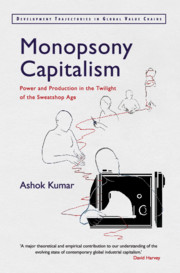6 - Cartels of Capital
from FUTURE
Published online by Cambridge University Press: 15 January 2020
Summary
In February 1972, Nixon went to China. While American bombers scoured the Vietnamese countryside with defoliants and explosive ordnance, killing and maiming its inhabitants by the millions, Richard Nixon arrived in Beijing, where flashbulbs popped on the tarmac, and a giddy American press corps – already primed to call this ‘the week that changed the world’ – went into ecstasy. An avowed anti-communist, no less, this president – the first to ever visit the People's Republic – had crossed the Pacific to extend a historic offer. Officially, it was peace. The US and China were not to be friends yet, but cordial acquaintances agreeing to agree on future agreements, eventuating in normalized relations.
By positioning the US – at arm's length – on China's side, Nixon and Kissinger had turned the mutual suspicion cleaving Sino-Soviet relations into an irreparable rift whose parties could now be dealt with on more favourable terms (Strategic Arms Limitation Talks [SALT] I, for example, was inked three months later). But this was not just an exercise in geopolitical manoeuvring, meant to isolate the USSR. There were other motives afoot, motives concerning the future of the world economy and America's place at its centre.
With the global financial and monetary system of Bretton-Woods deteriorating fast in the 1960s, it had become urgent that US monetary imperialism underwent transformation. First, by suspending gold convertibility of the dollar in 1971, US Federal Reserve Chair Paul Volcker removed the cap that was placed on America's balance of payments by tying it to a finite material. Next, an ingenious reversion: instead of acting as the world's creditor (drawing on its now-depleted gold reserves), the US would become its chief debtor, exploiting to the hilt that old saying, ‘If you owe the bank $100, that's your problem. But if you owe the bank $100 million, that's the bank's problem’ (the dollar's value being kept afloat by the petrodollar). By greasing the wheels of commerce, and the palms of politics, with a flood of American treasury bonds, it would remain the world economy's ‘indispensable nation’, still capable of exercising outsized authority – but now through a more elastic financial instrument. The US, of course, reserved the right to threaten war should anyone get any bright ideas and try to call in its tab.
- Type
- Chapter
- Information
- Monopsony CapitalismPower and Production in the Twilight of the Sweatshop Age, pp. 173 - 204Publisher: Cambridge University PressPrint publication year: 2020

